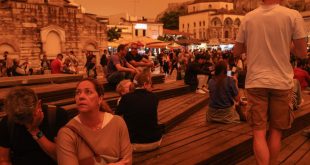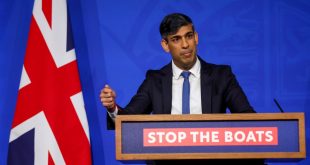
In total, the research considered 90% of the global population, amounting to 6.9 billion people.
And it found that countries like Nigeria, Côte D’Ivoire, and Mali, people require approximately a week’s worth of work to afford the internet. Nigeria has one of the slowest broadband internet networks globally (13.45Mbps), ranking 105th out of 110 index countries and 96th in worst mobile connections (17.91 Mbps).
Consecutively, internet quality in said countries stands at the lowest end of the index.
It also discovered the following;
1. Low and lower-middle income countries – home to 3.15B people – have to work four times more for at least three times slower internet than high-income countries.
2. People in low and lower-middle income countries have to work 4.9 times more than people in high-income countries to afford the cheapest 1GB of mobile internet.
3. High-income countries have access to almost three times faster mobile internet connections (61.41 Mbps) than low income countries (21.33 Mbps).
4. People in low-income countries spend approximately 11 hours 10 minutes per month for the cheapest broadband package, 4.2 times more than people in high income countries (2 hours 41 minutes).
5. The study also shows that the average broadband internet connection speed in high-income countries is four times higher.
“Digital opportunities have proved to be more important than ever during the COVID-19 pandemic, stressing the importance for every country to ensure fully remote operational capacities for their economies,” says Vytautas Kaziuokonis, CEO of Surfshark. “However, internet accessibility varies greatly in quality and affordability depending on where we live, revealing deep inequalities between low and high income countries.”
Generally, there is a wide internet speed gap between countries at the top and the bottom of the internet quality pillar. For instance, Bangladesh’s mobile internet speed (11 Mbps) is only 8% of the United Arab Emirates (145 Mbps). There is an even bigger inequality in bandwidth speeds: the world’s slowest internet (5 Mbps in Algeria) performs at only 2% compared to the fastest (230 Mbps in Singapore).
However, many countries have shown massive improvements in internet speeds since the beginning of the COVID-19 pandemic. As economies quickly shifted and adapted to the situation, as much as 40% of the researched countries improved their mobile internet speed by more than 50%. Broadband internet speeds grew less than mobile in most countries, yet 8 out of 110 countries managed to double their broadband speeds.
The Digital Quality of Life study by Surfshark is based on open-source information provided by the United Nations, the World Bank, Freedom House, the International Communications Union, and other sources. The report was made to be balanced by incorporating 14 factors into the five main pillars:
- Internet quality measured the stability, speed, and YoY growth of online connections;
- Internet affordability calculated the working hours required to pay for broadband and mobile internet;
- E-infrastructure measured the percentage of internet users per country and network readiness;
- E-security measured the ability to tackle cybercrime and the status of data protection laws;
- E-government measured the rollout of online government services and AI readiness.
Surfshark, a Gold winner at the 2021 Cybersecurity Excellence awards as Most Innovative Security Service of the Year, is a privacy protection toolset developed to provide its users with the ability to control their online presence seamlessly. The core premise of Surfshark is to humanize online privacy protection and develop tools that protect users’ privacy beyond the realm of a virtual private network. Surfshark is one of the very few VPNs that have been audited by independent security experts.
 Top Naija News: Nigerian News, Breaking News Nigeria and World News Top Naija News is a daily news publication in Nigeria, delivering the latest breaking news in Nigeria and around the world.
Top Naija News: Nigerian News, Breaking News Nigeria and World News Top Naija News is a daily news publication in Nigeria, delivering the latest breaking news in Nigeria and around the world.



